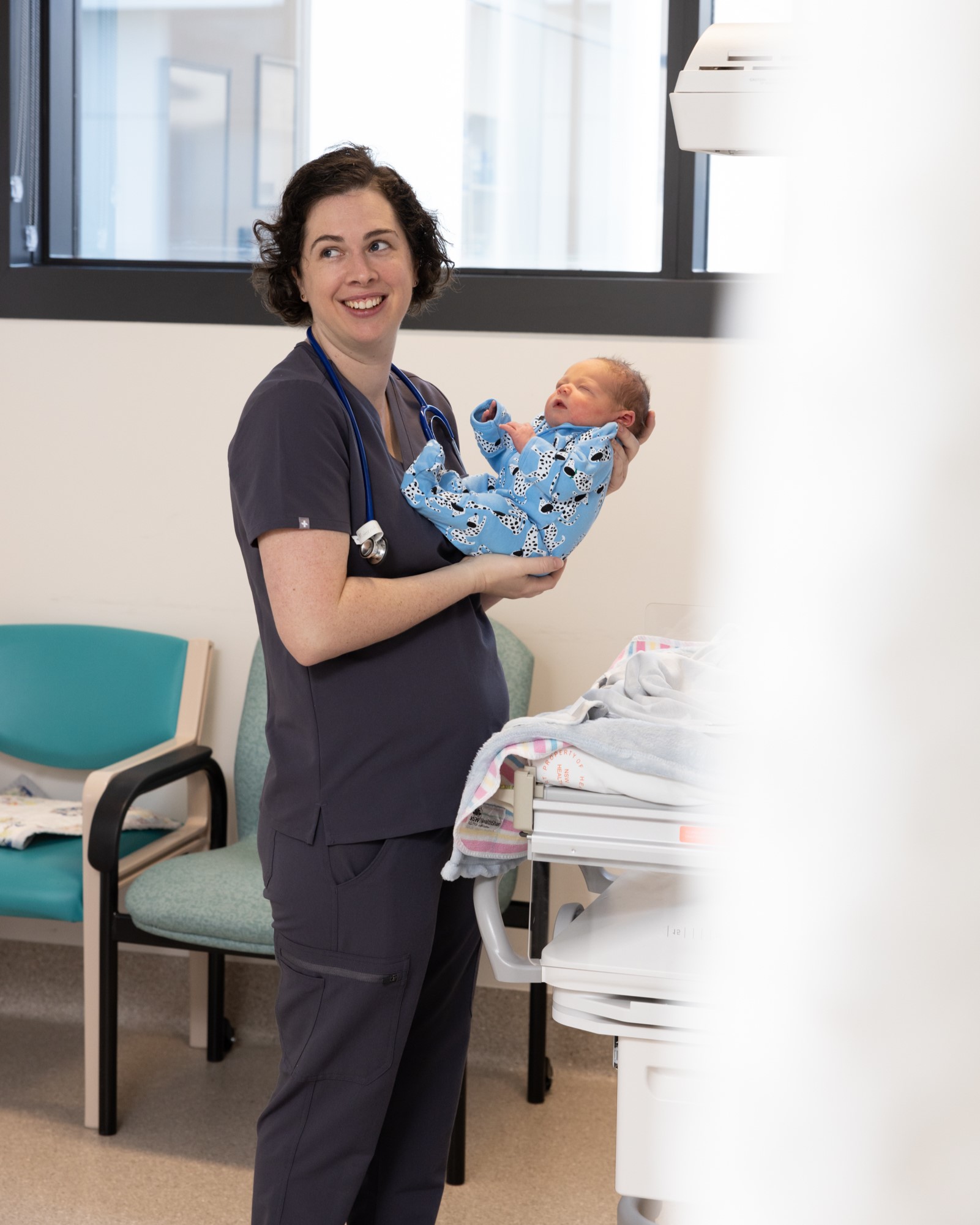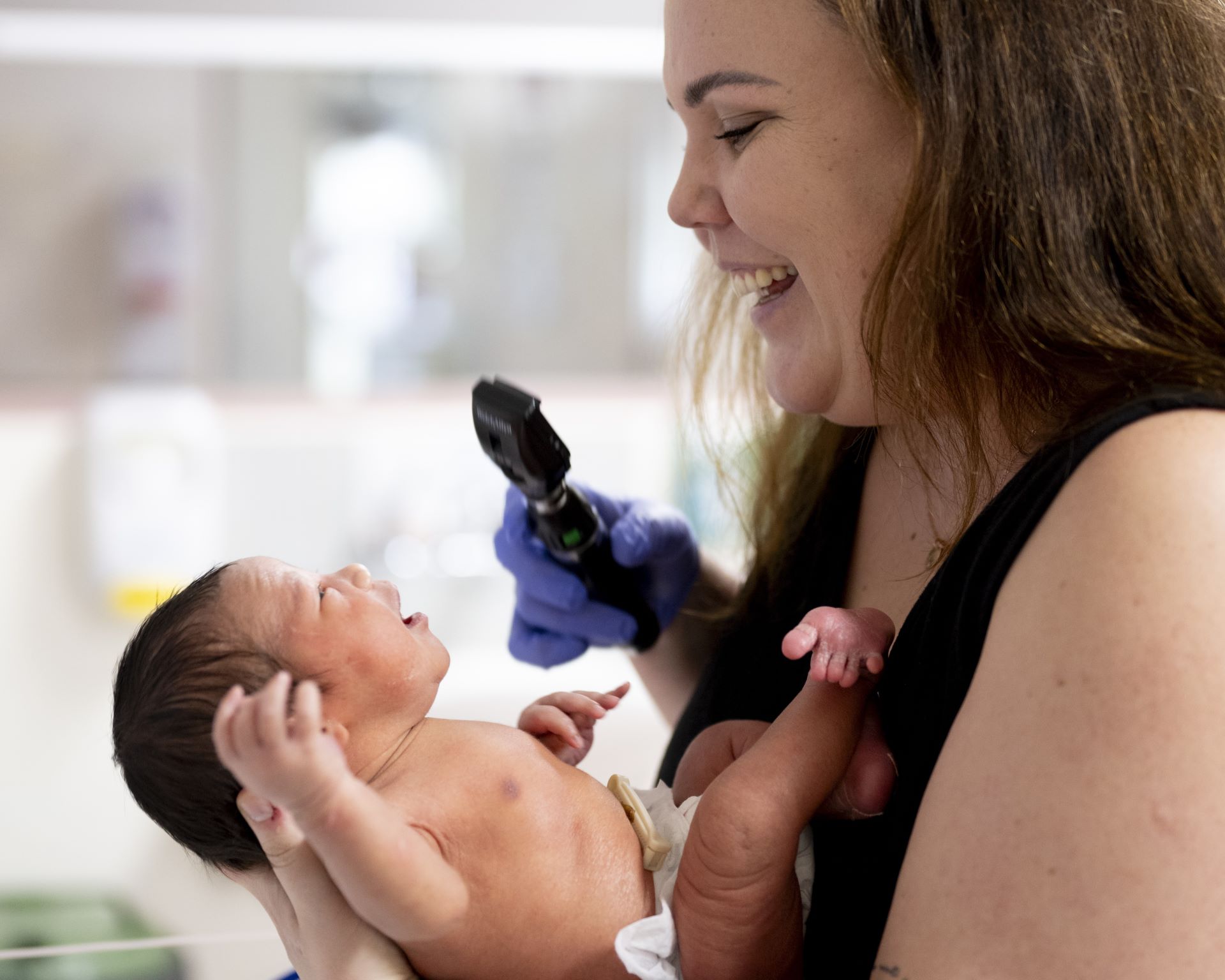About the AST
Deliver high-quality women’s health services with Advanced Specialised Training (AST) in Obstetrics and Gynaecology as part of the ACRRM Rural Generalist Fellowship program.
Designed for medical practitioners aspiring to excel in hospital-based settings and wish to develop skills to a level that will enable them to safely undertake complex deliveries and perform more advanced gynaecological procedures. This AST equips you to provide care to women at every stage of life, from managing pregnancies, births, and women’s health in rural and remote settings.
Training for the AST in Obstetrics and Gynaecology is managed by the Royal Australian and New Zealand College of Obstetrics and Gynaecology (RANZCOG) and is called the Associate Training Program (Advanced Procedural) (APTP)*.
*Please be advised that the previous Certificate and Diploma qualifications have undertaken a name change from February 2024.

Curriculum highlights / credentials
A Rural Generalist who has completed this AST can:
- undertake complex deliveries
- basic pregnancy ultrasound scanning
- advanced gynaecological procedures
- work in small rural or remote communities providing obstetrics and gynaecology services close to home for women and babies.
Where you can complete this AST
The RANZCOG Associate Training Program (Advanced Procedural) (APTP) must be completed at a RANZCOG accredited training site in rural and remote Australia. Click the link below to explore the list.
What’s the difference between an Obstetrician and an RG Obstetrician?
If you’re considering a career in women’s health, this blog shares Dr Sarah Saunders’ personal insights and what to think about when choosing your pathway.

Member stories
Read inspiring stories from ACRRM members who completed their AST in Obstetrics and Gynaecology.
Tell us about your own journey into medicine.
I chose medicine because I enjoyed studying human biology at high school and delving into anatomy and physiology as an undergraduate medical science student. I also wanted to contribute to the profession that had been so caring to my late grandmother in Taiwan especially in her older years.
I studied medicine at the University of Wollongong, and had many positive experiences with my University Rural Health Club, the National Rural Health Students’ Network, the John Flynn Placement Program, the NSW Rural Doctor’s Network Cadetship Program, and on clinical placements as far and wide as Broken Hill and Katherine. These opened my eyes to the many exciting personal and professional opportunities that a rural health career could offer.
I moved to Tamworth to do my internship and residency, before moving to Orange for my DRANZCOG Advanced training. I then moved to Cowra to complete my GP registrar training and have continued working there as a GP Obstetrician.
What advice would you give to junior doctors who are thinking about training as a Rural Generalist?
Being a Rural Generalist is satisfying and rewarding on many fronts. You will be able to offer patients ultimate continuity of care, work in very appreciative and beautiful communities, and have the greatest flexibility and variety of any medical career. Take time during your medical training to experience what Rural Generalist medicine or a rural career - you won’t regret it and you might even find that it is also the career and lifestyle for you.
What challenges have you faced in addressing drug and alcohol addiction in your community?
I occasionally see patients with drug and alcohol addiction issues in general practice. They can present in different ways - acutely with psychosis or during a mental health crisis, incidentally during exploration of patient's social history, or with complications such as liver disease and cognitive impairment. Some obstetric patients I cared for also struggle with drug and alcohol issues. As a Rural Generalist, I find it challenging managing these issues in the community as each patient is at a different stage of their addiction journey and the impacts of drugs and alcohol on their life are far reaching. Achieving wins takes persistence, engagement and time.
What prompted you to undertake the ACRRM Drug and Alcohol Addiction Education (DAAE) Program? How will you use these learnings and apply it to your local community?
I had heard about the program on the ACRRM website and via ACRRM emails. One of my registrars mentioned she had recently completed the program online and found it to be an excellent resource to assist her in her clinical practice and exam preparation, so I thought it would be worthwhile to do it to see for myself. I have been seeing more patients with multi-substance addiction lately, so was interested to update my knowledge and skills in the area so that I can be more aware of what I need to consider and what resources are available to me to manage these patients. The fact that the course was free and had a financial incentive attached (for ACRRM members) was a bonus.
As a Medical Educator for ACRRM’s Independent Pathway why do you think the DAAE program is important for FACRRMs and rural doctors in training?
The DAAE program really helps to meet a gap in drug and alcohol education for FACRRMs and rural doctors in training. There are so many areas of medicine that we need to be knowledgeable on. Drug and alcohol addiction is an area I've mostly learned through self-education. There's often not enough time apportioned to covering it in medical school or in structured teaching programs. As rural doctors we will always have patients that will come to us for help in this area, and we have the best opportunity to make a positive impact if we can start the doctor-patient relationship with them on this issue optimally from the start. The DAAE program is easy and logically structured, covers a lot of relevant information concisely, and written in a way that is friendly for doctors who don't see a lot of drug and alcohol addiction patients but want to know key points on how to make a difference.
What takeaways have you had following completion of the ACRRM DAAE Program?
The program has reinforced the importance to me of appropriate and respectful use of language in communicating with patients, family members and communities on drug and alcohol issues. It has helped me better understand the natural history of addiction and what drug and alcohol-affected patients are experiencing. It has also directed me to several amazing resources on the topic.
What would you say to anyone thinking of enrolling in the program?
The DAAE is a great option to upskill in drug and alcohol addiction at your own pace, and the online delivery is great especially during the current COVID-19 pandemic. The content is tailored for the rural doctor in mind, and is practical, relevant and to the point.
--
For more information and to enrol into the ACRRM Drug and Alcohol Addiction (DAAE) Program, click here.
Got a question about training?
You can call us on 1800 223 226 or contact the training team.







